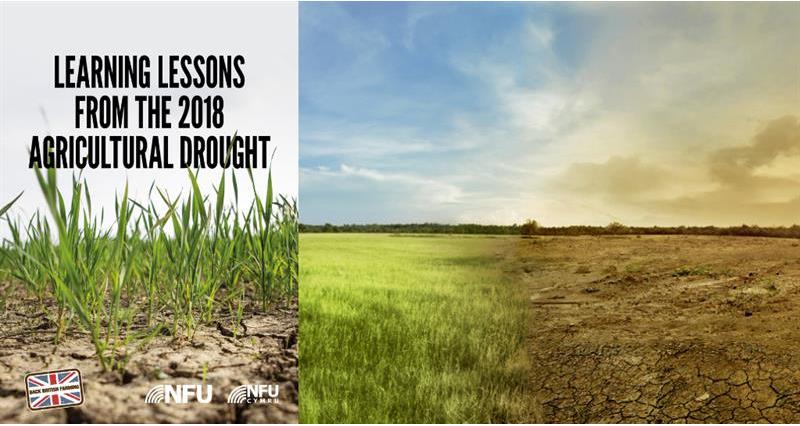A document setting out key priorities to help move towards a more drought-resilient farming sector and food system has been published to coincide with Farmers’ Day at the UN Climate Change Conference (COP24), in Poland.
Recommendations for the Government and its agencies and for the farming sector include:
PLAN
- Develop long-term multi-sector collaborative plans for managing water scarcity where food production is recognised as a priority user
- Develop and promote best practice in the management of resources like soil and fodder across all sectors to improve farm resilience
- Ensure strategic planning of straw supply and demand across the straw industry, uniting the supply chain
- Promote contingency planning amongst farmers to help them better understand the risks of water supply disruption and how to manage them
PROTECT
- Develop policy measures to support farmers in managing the impacts of weather and market-related volatility, including droughts and water scarcity
- Deliver maximum and timely flexibility in the application of water abstraction rules
- Make prompt payments and introduce rapid derogations to rules governing farmed environment schemes
- Remove blockages in the planning and licensing regulations that impede the construction of more on-farm water storage reservoirs
PAY
- Introduce incentives through the tax system to enable investment in farm reservoirs, and new farmed environment schemes to encourage water efficiency measures delivering more crop per drop;
- Invest in improved monitoring and measuring of abstraction to make best use of available water
- Continue investment in the UK’s weather forecasting capability, especially in medium-term forecasts and those aligned to real-time water availability monitoring to support drought planning
NFU President Minette Batters said:
“The summer’s heatwave and the impacts of the agricultural drought were hugely challenging and should be a wake-up call for us all. It caused crop yields to become increasingly unpredictable, lower quality in fruit and vegetables, a severe lack of feed and bedding for livestock, interruptions to vital water supplies and an increased risk of fire. The reality is that the full effects won’t really be known until next year.
“It exposed the vulnerability of the UK’s farming sector, much of which relies on regular rainfall to meet crop and animal welfare needs. This places our sector in sharp contrast to other water users.
“At our Drought Summit in August Defra Secretary of State Michael Gove promised ‘to do whatever it takes’, to deliver ‘maximum flexibility’ and to ‘move quickly’. Since then we have been working closely with the Government and its agencies to alleviate the effects of the drought and will continue to monitor for potential drought next year.
“Our industry is on the forefront of climate change impacts and producing safe, traceable and affordable food is a daily challenge for UK farmers. The lessons we have learned clearly identify what policies need to be in place to manage market failure and volatility. This must be treated seriously alongside productivity and delivering for the environment in order to provide a supply of home grown food and to deliver food security for the nation.”
NFU Cymru President John Davies added: “The weather conditions experienced during the course of 2018 have highlighted the importance of future policy measures that provide stability to farm businesses and address volatility caused by factors beyond farmers’ control.”
More from NFUonline:
- Expert insight: The next seven days in the Brexit process
- Members: Speak up for farming on the Agriculture Bill
- The Agriculture Bill - all the information in one place
- New Bitesized Brexit podcast episode talks to Brussels
- NFU summary: Draft Withdrawal Agreement and outline Political Declaration
- EU - UK Political Declaration - what is it and why does it matter?
